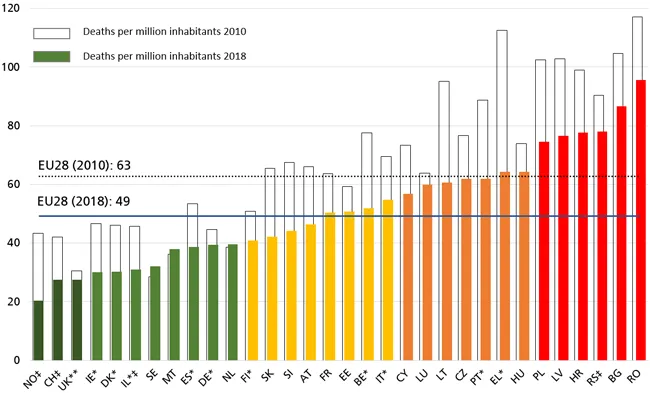In the UK a number of road safety campaigning groups are warning that driver distraction from mobile phones will become a bigger killer than drink driving by 2015. While cellphone use by drivers is banned in the UK, penalties are still light and enforcement lax. Drivers still frequently use cellphones while behind the wheel. Suggestions have been made to double the penalties facing offenders, but if this ruling is accepted it will still take time to implement. And some say these tougher penalties are still light given the risks involved, as well as commenting that enforcement measures will have to be more rigorous for the changes to have any value whatsoever. Research suggests that the numbers of motorists using mobile phones to make calls, texts or social media updates whilst driving has risen to epidemic levels and unless this serious issue is tackled, distracted driving could well become the biggest single cause of death and injuries on the roads.
When these figures are combined the total number of deaths is 213, only 27 less than are caused by drink driving. And with the current steep decline of drink drive deaths, mobile phone distraction is expected to become the biggest cause of death on the roads by 2015.
Simon Marsh, managing director of incident video camera firm SmartWitness, said: “The problem is far more widespread than Department of Transport believes and driver distraction due to mobiles will soon be the biggest single cause of death on the roads. We believe a large number of serious and fatal accidents are wrongly classed as ‘in-vehicle distraction’ when the specific cause of the accident was down to mobile phone use.”
Distraction poses increasing risk to driving safety
In the UK a number of road safety campaigning groups are warning that driver distraction from mobile phones will become a bigger killer than drink driving by 2015. While cellphone use by drivers is banned in the UK, penalties are still light and enforcement lax. Drivers still frequently use cellphones while behind the wheel. Suggestions have been made to double the penalties facing offenders, but if this ruling is accepted it will still take time to implement. And some say these tougher penalties are still
July 21, 2014
Read time: 2 mins








